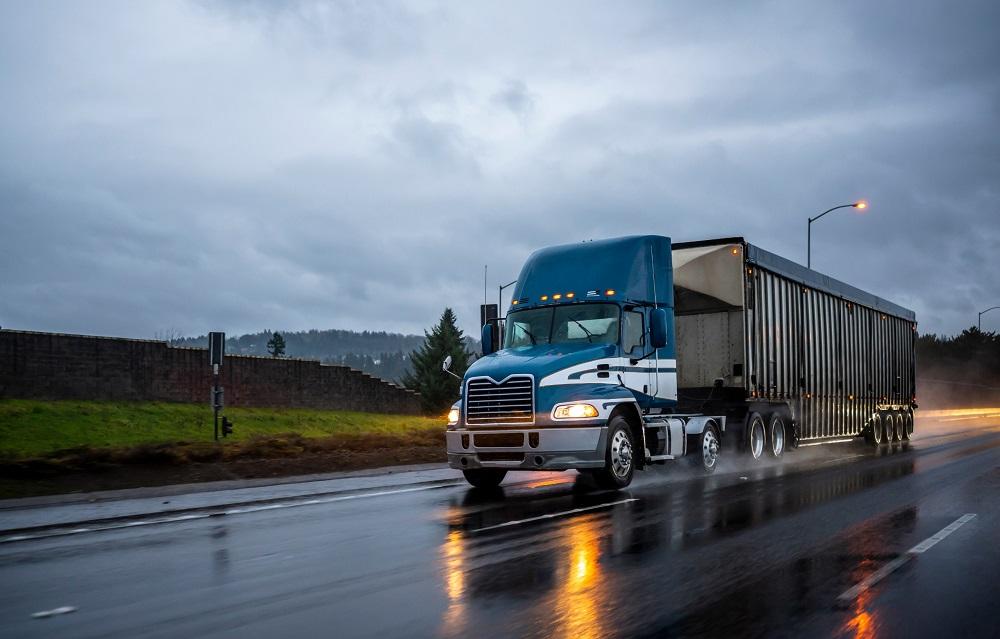Comparing The Different Semi Truck and Trailer Types
January 25th, 2023
By Arrow Truck Marketing

What do you know about semi-trucks and trailers? Can you name the different types and what they might be used for? If you’re shopping for a rig and the different terms have you feeling a bit lost, here’s a brief introduction to the different types of trucks and trailers you see on the road.
Trucks, Trailers, and 18-Wheelers
You might hear the terms truck, trailer, and 18-wheeler used interchangeably. While that’s generally fine, in practice, it’s valuable to be familiar with a more specific definition for each term.
Semi-Truck: Semi-truck is the term that refers to the front of the truck, also known as the tractor or the cab. The semi-truck houses the engine and the driver, plus possibly some amenities for the driver, depending on the type of semi-truck it is. Semi-trucks will have limitations surrounding what they can pull based on their weight limits, towing capacities, and horsepower.
Semi-Trailer: The semi-trailer is the part of the truck that hauls the load. Semi-trailers are detachable from the semi-truck and come in different shapes, sizes, and configurations to fit the load.
18-Wheeler: An 18-wheeler is a semi-truck and a semi-trailer fitted together. You might also hear these referred to as tractor-trailers since they are, in fact, tractors and trailers attached together. Semi-trucks can be attached to almost any trailer.
Now let’s look at the different types of tractors and trailers you can find at Arrow Truck Sales.
Semi-Trucks
What kinds of tractors are available for your rig? Talk to Arrow Truck Sales, your local reputable semi-truck dealer, about your options, which include the following:
Day Cab
Day cab tractors are made for short-haul trips that last a day or less. These trucks have no place for the driver to sleep and are smaller with fewer axles, and less expensive than tractors used for long-haul trucking.
Sleeper Cabs
Long-haul truckers need a place to sleep while traveling. Sleeper cabs on semi-trucks provide the driver with, at minimum, a bed but may be equipped with many additional amenities, depending on the make and model. Drivers have three basic options for sleeper cabs: Flat Roof Sleepers, Mid-Roof Sleepers, and Raised Roof Sleepers. All three provide the driver with a place to sleep on long trips, but the increasing roof heights provide more room (at a higher cost) which can be more comfortable on particularly long routes. The headroom difference between a flat roof sleeper and a raised roof sleeper is anywhere from 12-18 inches. Drivers looking for maximum space and flexibility opt for raised roof models.
Slope-Nosed versus Conventional Nose
Another option drivers have when choosing a semi-truck is the nose shape. A slope-nosed truck has a rounded front end that protrudes from the cab. This shape lends itself to good maneuverability and hauling particularly heavy loads. Conventional-nosed semi-trucks look like a bus; the front end is basically flat from top to bottom. Trucks were designed with this shape to provide easy access to the engine, but they’re becoming less and less popular due to a reputation for poor fuel economy.
When it comes to the semi-truck, the length of the route and the preference of the driver play a large role in selecting the best model.
Semi-Trailer
When it comes to selecting a semi-trailer, the cargo is the primary consideration. Each type of trailer is best suited to a specific type of cargo.
Flatbed. A flatbed trailer is a flat, open trailer that can carry secured loads of carrying size and shape.
Lowboy. Lowboys are flatbed trailers mounted below the level of the wheels. The low mounting position makes it possible to haul exceptionally tall equipment. These also come in removable gooseneck models that make attaching the trailer to the truck easier.
Reefer. A reefer is slang for a “refrigerated” trailer. Reefers carry cargo that needs to stay cold during transit.
Conestoga. Conestoga trailers are open trailers with a full-length tarp system.
Dry Van. A dry van is a standard rectangular shipping container.
Stretch Double Drop. These trailers can be extended in order to haul long, oversized equipment
Multi-Car. This trailer has multiple cars for hauling extra loads.
Sidekit. A sidekit trailer is equipped with plywood or metal sides to keep the contents contained as well as metal arches for attaching covers.
Dumps or tippers. These trailers tip to disperse their contents.
Tankers. These trailers are equipped with tanks for hauling large amounts of liquid or gas.
Other Considerations
In addition to considering the length of your hauls, driver comfort, and cargo, there are a few other things to consider prior to purchasing a semi-truck and trailer.
What type of geography and weather conditions will you travel in?
Will your truck need the power to climb mountains?
How much will your cargo weigh?
Is resale value important to you?
What are your horsepower and fuel efficiency needs?
By answering these questions, plus identifying your driver and cargo needs, you can narrow down your options and find a semi-truck that will get you and your payload where you need to go.
Which Truck and Trailer Should You Buy?
At Arrow Truck Sales, we love trucks. We could talk about trucks all day long. We’re in the business of helping our customers find exactly the semi-trucks they need. We’ve got outstanding choices in our inventory, so you’re sure to find the make and model you’re looking for. And, if you’re a bit uncertain about what you need or want, our team is available to walk you through your options. We’ll help you find what you need, sort out the financing, identify tax breaks, get you insured, and keep you going with exceptional warranties and roadside assistance. When it comes to trucking, we’ve got you covered.
If you’ve got cargo to haul, we’ve got the truck you need to haul it in. Give us a call today to see what Arrow Truck Sales can do for you.

